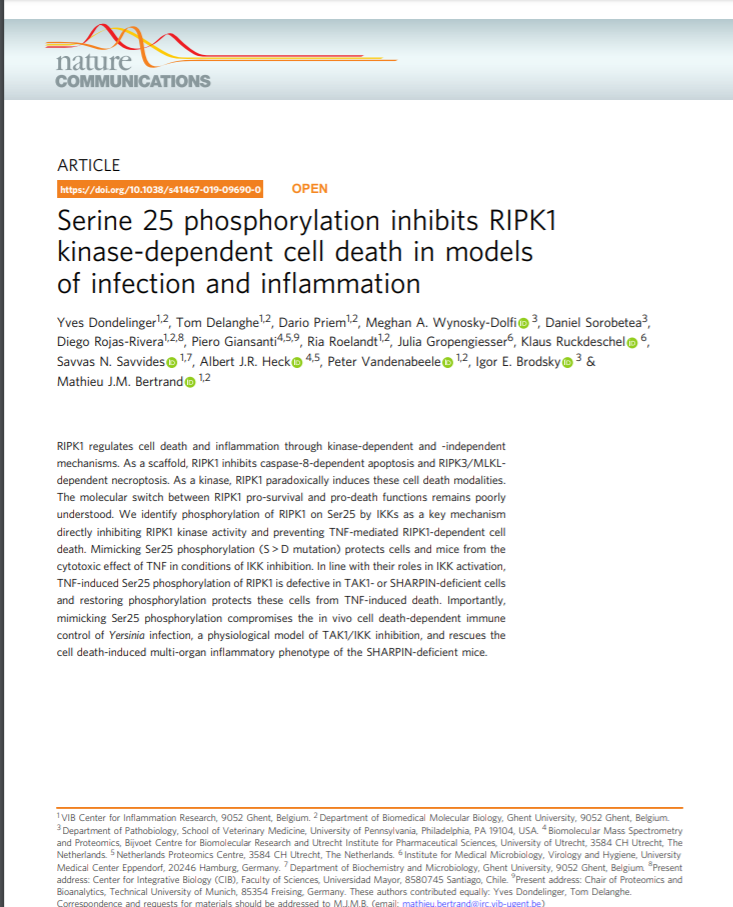Serine 25 phosphorylation inhibits RIPK1 kinase-dependent cell death in models of infection and inflammation

Fecha
2019Autor
Rojas-Rivera, Diego [Univ Mayor, Fac Sci, Ctr Integrat Biol]
Dondelinger, Yves; Delanghe, Tom; Priem, Dario; Wynosky-Dolfi, Meghan A.; Sorobetea, Daniel; Giansanti, Piero; Roelandt, Ria; Gropengiesser, Julia; Ruckdeschel, Klaus; Savvides, Savvas N.; Heck, Albert J. R.; Vandenabeele, Peter; Brodsky, Igor E.; Bertrand, Mathieu J. M.
Ubicación geográfica
Notas
HERRAMIENTAS
Acceda a títulos restringidos
¿Cómo descargar?Resumen
RIPK1 regulates cell death and inflammation through kinase-dependent and -independent mechanisms. As a scaffold, RIPK1 inhibits caspase-8-dependent apoptosis and RIPK3/MLKL-dependent necroptosis. As a kinase, RIPK1 paradoxically induces these cell death modalities. The molecular switch between RIPK1 pro-survival and pro-death functions remains poorly understood. We identify phosphorylation of RIPK1 on Ser25 by IKKs as a key mechanism directly inhibiting RIPK1 kinase activity and preventing TNF-mediated RIPK1-dependent cell death. Mimicking Ser25 phosphorylation (S > D mutation) protects cells and mice from the cytotoxic effect of TNF in conditions of IKK inhibition. In line with their roles in IKK activation, TNF-induced Ser25 phosphorylation of RIPK1 is defective in TAK1- or SHARPIN-deficient cells and restoring phosphorylation protects these cells from TNF-induced death. Importantly, mimicking Ser25 phosphorylation compromises the in vivo cell death-dependent immune control of Yersinia infection, a physiological model of TAK1/IKK inhibition, and rescues the cell death-induced multi-organ inflammatory phenotype of the SHARPIN-deficient mice.
Coleccion/es a la/s que pertenece:
Si usted es autor(a) de este documento y NO desea que su publicación tenga acceso público en este repositorio, por favor complete el formulario aquí.